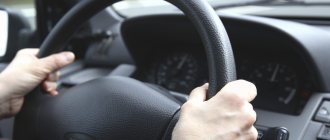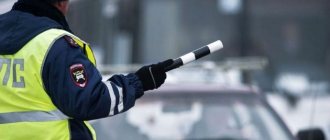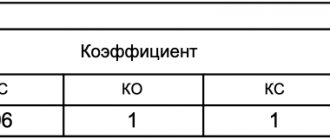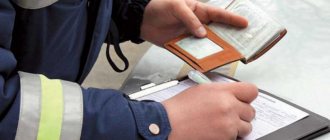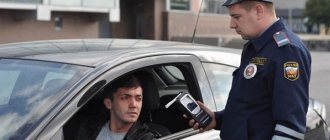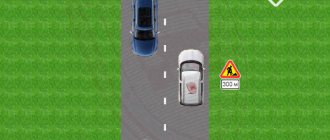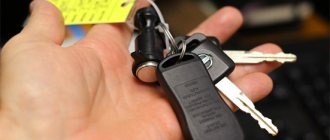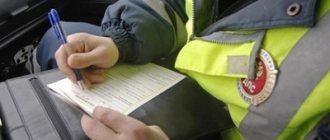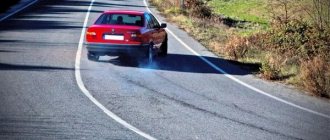AutoUrayt.rf / Questions
Back
Published: March 14, 2020
Reading time: 3 min
1
1093
Often, when motorists on the road are suspected of being drunk, traffic police officers offer to undergo a test for alcohol or drug intoxication. In the first case, the regulations are quite simple and clear. But in the second case, everything is a little more complicated - drug intoxication cannot be determined by smell, and a rapid drug test is not a pleasant procedure. The driver will have to hand over biological material in the form of urine right on the road, but he cannot refuse, as there is a risk of losing his driver’s license. What is the legality of this procedure, does the inspector have the right to demand a drug test from a motorist and can he refuse the procedure? We will consider all these questions in this article.
- Why is a rapid urine test a good option for the traffic police?
- Does a traffic police officer have the right to ask you to pee in a jar?
- Is it possible to refuse a urine test and still have your license? How should the examination be carried out?
- Why can't you agree?
Why is such research needed?
Drug intoxication examinations are carried out in specialized 24-hour medical offices by appropriate staff with certain qualifications. During such a study, medical workers will have to determine whether a person is in a state of drug intoxication.
The purpose of such a drug intoxication examination is to accurately determine the absence or presence of a state of intoxication, to document the fact of the use of narcotic drugs, psychotropic, intoxicating, psychoactive or other dangerous substances that can cause such a state. After all, a person loses control over his actions and can pose a real threat to himself and others.
Such a medical examination for drug intoxication includes several stages:
- A thorough examination conducted by an experienced and professional narcologist-psychiatrist.
- Examination of the air exhaled by a person suspected of using illegal substances for the presence of alcohol. This is a mandatory point of investigation, even when a citizen is brought in to find out whether he has used drugs.
- Determination of the presence of psychoactive substances in urine.
- If such substances are found there, their concentration in the biomaterial is examined.
- A study of the level of psychoactive substances contained in the blood is also carried out.
Inspection process
Now we will analyze in detail the procedure for testing for drug intoxication. After an examination by a psychiatrist-narcologist, the exhaled air is examined for the presence of alcohol vapors. Such a study is carried out at intervals of 20-25 minutes. However, if the result is negative during the first test, then a repeat examination of the exhaled air is no longer carried out.
The result of this test is recorded using specialized measuring equipment and recorded on paper and electronic media. These are the requirements of current Russian legislation.
Check procedure
Medical examination consists of several stages:
- Entering into the inspection report the personal data of the driver to be verified.
- Examination of exhaled air for the presence of alcohol vapor using a breathalyzer.
- A retest is not carried out if the result is negative (that is, the device shows less than or equal to 0.16 ml per liter of exhaled air).
- If the result is positive, a repeat test should be performed after 15-20 minutes.
- If its result is positive, then the state of intoxication is considered established.
- Along with a breathalyzer test, the motorist takes tests (blood or urine) to conduct chemical and toxicological studies.
- If, as a result of research, traces of psychotropic or narcotic substances were found in the blood or urine, a state of intoxication has been established.
- The results of all checks, as well as the final result, are recorded in the inspection report.
Please note that refusal of at least one stage of verification is considered a refusal to undergo a medical examination.
Examination of car drivers
Most often, vehicle drivers are brought to a drug treatment clinic for appropriate examination. If, during an inspection or checking documents, a traffic police inspector has strong suspicions that the driver is under the influence of alcohol or drugs, he invites him to undergo an appropriate study.
When such a driver is brought to a drug treatment clinic for the purpose of conducting a study, complaints and anamnesis are first collected, as well as a visual and detailed examination, which can reveal clinical signs of intoxication in a person.
Next, regardless of the results of testing the exhaled air for the presence of alcohol, biological materials are collected and sent for chemical and toxicological testing. These include blood and urine.
Who else needs to be tested?
There are also several other categories of citizens who have to undergo a medical examination for drugs. These include:
- persons who have committed administrative offenses;
- persons for whom the result of the examination is important for the investigation of a criminal case, refutation or confirmation of the commission of a crime or administrative offense, consideration of a case of an administrative offense;
- military personnel called up for military service or military training;
- employees who showed up at the workplace with signs of drug intoxication;
- unemployed people who showed signs of drug intoxication for re-registration;
- adult citizens who independently came for examination;
- minors, in order to establish signs of drug or toxic intoxication;
- citizens who have been declared incompetent in accordance with the procedure established by law, if they themselves are not able to give consent to such an examination being carried out in relation to them.
If during the drug examination at least three signs of intoxication were identified that can be classified as clinical, samples of biological materials are taken. This is urine and blood. They are sent for subsequent chemical and toxicological testing. This happens even if the first and repeated tests of exhaled air for the presence of alcohol in it turn out to be negative.
In a chemical-toxicological study, specialists determine the presence and level of narcotic substances in the human body, as well as the level of their metabolites, which caused intoxication, with the exception of alcohol.
Moscow eighth-graders will be tested for drugs
In addition, taking into account the positive results obtained during the implementation of a pilot project for testing for early detection of illegal consumption of narcotic drugs and psychotropic substances among students in the 8th grade of educational organizations subordinate to the Moscow Department of Education (previously testing was carried out among students in the 10th grade and 1st year students of professional educational organizations), this category will be included in the medical testing program for the illegal use of narcotic drugs and psychotropic substances. In total, in 2021, 49,944 preventive medical examinations were carried out for early diagnosis of illegal drug use in 601 educational organizations in Moscow. Based on the results of a confirmatory chemical-toxicological study, 29 drug users were identified. After conducting individual motivational work to change maladaptive forms of behavior and obtaining voluntary informed consent in writing, all of them were sent to the Children's Drug Treatment Center for inclusion in the diagnostic and treatment program.
As was noted during the meeting of the Moscow Anti-Drug Commission, held in early April, work in educational institutions is one of the main areas of the commission’s work. In 2021, more than 600 teachers took part in training seminars on the topic “Organization and conduct of activities for the early detection of illegal drug use”, conducted by specialists from the Center for Primary Prevention of Drug Addiction of the Moscow State Budgetary Educational Institution “Technical School of Service and Tourism No. 29”. In addition, ongoing training seminars have been organized for school and college employees. Narcology specialists from the Moscow Scientific and Practical Center for Narcology of the Moscow City Health Department took part in 618 parent meetings and 327 pedagogical councils in educational organizations of the Department. In addition, the city is conducting active preventive work aimed at promoting a healthy lifestyle, popularizing physical education and sports, and introducing minors to regular physical education and mass sports. Preventive measures are also implemented by non-profit organizations with the support of the Moscow Government. Anti-drug preventive measures are implemented within the framework of the State Program of the City of Moscow “Safe City”, the responsible executor of which is the Department of Regional Security and Anti-Corruption of the City of Moscow.
Conducted in 2016-2017. testing among students showed positive results. In particular, there has been a decrease in the number of students who refused to undergo medical preventive examinations (from 32% in the 2014-2015 academic year to 15.7% in the 2016-2017 academic year) due to outreach work with students and their parents. Experts also note as a positive result the real possibility of identifying a “risk group” from among students who refused to participate in testing and the possibility of organizing further targeted work. As noted in the Report on the results of monitoring the drug situation in Moscow in 2021, last year medical institutions of the Moscow City Health Department examined 48,591 young men of 15-16 years of age (pre-conscription). Not a single drug user was identified among them. During the initial military registration in 2021, 39,479 young men underwent a medical examination, of which no drug users were identified (in 2016, 6 drug users were identified).
results
A medical examination for drug intoxication is issued in the form of an official act in the form established by the Ministry of Health of the Russian Federation. There are several types of such forms (for drug, alcohol, toxic intoxication), but we are interested in studying the level of narcotic substances in the human body.
This act of examination for drug intoxication is certified by the signature of the doctor who conducts the examination itself.
When citizens are referred for drug testing by an employer, the organization enters into an agreement for the provision of paid medical services with the appropriate clinic, which has certain licenses, permits and competence to conduct such a study. As a rule, the employer's choice is a drug treatment clinic at the place of residence.
Most often, organizations that oblige their employees to undergo such checks are law enforcement and medical structures, companies that care about their reputation.
Is it possible to refuse and remain with the rights?
You don't have to practice your marksmanship with a glass in the fresh air.
However, the situation can be turned into a joke: you agree to pee in a cup if the inspector holds it.
If the traffic police officer still does not fall behind, demand compliance with the examination procedure and medical examination.
How should the examination be carried out?
Below is a complete description of the procedure in effect for 2021. It is regulated by the regulations of the Ministry of Internal Affairs.
- First, the inspector is obliged, in the presence of two witnesses or using a video recording, to draw up a protocol on the suspension from driving a vehicle.
- Then, an alcohol intoxication examination report is drawn up, and you have the obligation to blow into the breathalyzer. If you haven’t taken alcohol in the last 24 hours, then there’s nothing to be afraid of – feel free to drink. But remember - only exhalation is used for the test, the inspector has no right to pee in a jar or other actions on the road!
- However, you can also refuse purging. In any case, the inspector suspects intoxication, and the examination is only a necessary step to legally send you to a doctor.
- The doctor in the office will fill out a medical examination report and also ask you to blow into a breathalyzer. And then he will offer to urinate in a glass. It is the doctor who has the right to dip the test strip into a biological sample and give an opinion whether it contains traces of psychotropic or narcotic substances or not. We are talking about suspicions, since dipping the test in urine is only a preliminary analysis. And, if the test strip reacts to some substance in the body, then in order to make a verdict about the presence of drug intoxication, the doctor is obliged to send the sample for a confirmatory test to a chemical-toxicological laboratory.
- Research in the chemical-toxicological laboratory is carried out anonymously using two different methods. There is no doubt about their reliability. And even if the doctor cheated during the preliminary analysis, an assessment of the results of confirmatory studies will indicate his dishonesty.
All of the above is a description of the procedure that does not go beyond the legality and integrity of traffic police inspectors, and this is how they not only have the right to check for intoxication, but are also obliged if there are grounds for this.
Referral by employer
An examination for drug intoxication is carried out for compelling reasons, the list of which is approved by law.
Thus, the basis for conducting such a study may be, for example, a referral issued by the employer, to which is attached the employee’s written consent to voluntarily conduct this examination. Also, a current or potential employee of this organization must give permission for the processing of his personal data, and also sign a statement that he does not object to the results of his examination being transferred to the employer. In this case, the examination is not carried out anonymously.
The referral received from the employer by a current or potential employee when applying for a job contains information about the employee who is being sent for this study, as well as information about the authorized person who must receive the results and become familiar with them.
In this case, the results of the drug test must be ready within ten days. During this period, the employer’s representative indicated in the referral is given a completed report, as well as a certificate with detailed results of a chemical-toxicological study and data obtained from the collection of exhaled air. These materials must be provided on paper. The citizen who completed the study receives copies of them.
Driver candidates will be tested for chronic alcoholism and drug addiction
https://static.news.ru/photo/18747f90-2dcc-11ea-9d9a-fa163e074e61_660.jpg Photo: Konstantin Kokoshkin/Global Look Press
Russian driver candidates will be required to take tests to check for chronic alcoholism and the presence of prohibited substances in the body, including opiates, cannabinoids, cocaine and methadone. Kommersant talks about the new order of the Ministry of Health of the Russian Federation regulating the procedure for obtaining medical certificates within the framework of driving commissions.
According to the publication, the Ministry of Health is establishing new rules for the examination of drivers and driver candidates. The document is currently being assessed by the Government Analytical Center as part of the so-called regulatory guillotine. It may come into force on January 1, 2022.
The text of the order mentions “laboratory tests of blood and (or) urine to determine chronic alcohol use,” but does not specify specific methods for detecting the disease. At the same time, the document states that citizens will be sent for research if signs of chronic alcoholism are detected. In addition, such a procedure will become mandatory for those citizens who return their rights after deprivation.
The order also determines the need to take a test for the “presence of psychoactive substances” for those in whom doctors identify “signs” of drug addiction, as well as for those who return their license; prohibited substances will be searched for using a two-stage chemical and toxicological study.
According to Kommersant, 1.2 million Russians received rights in 2021. Another 4.7 million certificates were issued to replace expired, stolen, and so on. Thus, the changes will affect several million people. The Ministry of Internal Affairs has not yet officially commented on the project.
The publication also reports that by July 1, 2022, the police and the Ministry of Health will have to establish a digital exchange of data about drivers through a single state one. health information system. The amendments are in the government and have not yet been introduced to the State Duma.
Earlier it became known that during a trip to a personal plot, summer residents may face additional fines. For example, they may be forced to pay for transporting an animal incorrectly. According to the law, this may obstruct the driver, limiting visibility and ease of operation.
Add our news to your favorite sources
Add
In case of self-application
If there is a need to independently apply for an independent examination for drug intoxication, then the citizen in this case should enter into an agreement for the provision of paid medical services. It is concluded with an individual directly at the place where the service itself is provided, that is, in a clinic or drug dispensary.
In this case, the basis for the examination will be considered a written statement from the citizen, in which he declares his desire to undergo this examination, describes in detail the reasons why he needs it, and also presents a document proving his identity. The same application must provide consent to the processing of personal data and confirmation of voluntary consent to conduct such an examination.
In this case, the period for conducting the survey is minimal. The study is carried out immediately after the medical organization receives all the necessary documents. After this, the citizen who wishes to undergo this examination is given a receipt according to which he must pay for this service. As a rule, this can be done at the accounting department or cash desk of a medical institution.
The results of this examination, as well as the study of exhaled air, are transferred to the citizen only after he pays in full for this service.
The medical organization undertakes the responsibility to transfer the materials of this medical examination no later than ten days after receiving the receipt paid in full. The results of the study are sent in a single copy. The citizen receives a completed protocol, two results of the air he exhales, as well as a certificate of the results of the chemical and toxicological examination. At the medical institution, they are handed over to the customer of the study personally.
What are the new roadside inspection rules?
In paragraph 11 of the RF PPVS No. 20 it is stated that if a traffic police officer or other authorized person did not offer to undergo an examination for alcohol intoxication on the spot (the so-called “purge” with a breathalyzer), then this is a violation of the established examination procedure, and the courts must take this into account .
If the judge has doubts about the legality of the act on the status of the joint-stock company, then today, in 2021, he must check the information about the training of the doctor who conducted the medical examination, as well as the license of the institution in which it was carried out. The license must include work and services for medical (narcological) examination.
Another new and very important point. Now traffic police officers will not be able to tell drivers to evacuate and detain a car when the driver has been tested for drugs or chemicals, and the inspector says that the results will be ready only in a week or two.
So, CTI (chemical toxicological examination) is a procedure carried out as part of an examination and cannot be regarded as an administrative investigation into a case of an offense. This means that while there are no results, the driver is not drunk, or, to be more precise, the state of intoxication has not been established.
Features of the selection of biomaterials
It is worth noting that a positive result of testing exhaled air for the presence of alcohol is considered to be the presence of an absolute concentration of ethyl alcohol, which exceeds the total error of the device. That is, more than 0.16 milligrams per liter of air exhaled by a person.
In order to determine whether a person’s body contains narcotic substances, a urine test is performed. However, the law provides for cases when blood can be taken for analysis instead.
This happens if the person being examined suffers from an acute form of the disease. Either his health condition is so bad that his life is in danger, or he declares that within half an hour he is not able to provide the amount of urine required for a full examination.
In this case, a medical worker with appropriate qualifications will draw blood into two tubes. Blood for this study is taken from a superficial vein.
Examination procedure
Quite often, traffic police officers send drivers who show clinical signs of using prohibited substances to be tested for drug intoxication. For this purpose, the driver of the vehicle is first examined by a doctor or paramedic. Then biological material is collected from him, in this case urine, and then it is examined as part of a chemical-toxicological study, and a rapid analysis is carried out.
To conduct a reliable study, it is necessary to obtain at least 30 millimeters of urine in a special disposable container. The driver takes the test in the toilet room, where conditions have been created that exclude the possibility of substituting biological material.
In addition, in order to exclude falsification of the urine of a driver whom the traffic police suspect of using narcotic substances, within the first three minutes after collecting the analysis, the temperature of this biological material is measured using a special non-contact device, in which automatic registration of the measurement results is planned. You can ensure that the presented biological material is not counterfeit if its temperature is above 30 degrees Celsius.
Based on the results of this study, the doctor draws up a conclusion in which he comes to one of the conclusions: the person was in a state of alcohol or drugs, intoxication was not established, or he refused to be examined.
If the driver’s biomaterials contain a maximum level of chemical substances, then it is officially recognized that he was in an inappropriate condition. Based on the results of the examination for drug intoxication, the traffic police draws up an administrative protocol in which the corresponding violation is entered: driving while intoxicated. The documents are sent to the court, where the issue of depriving the driver of his license is already being decided.
To prove the driver’s guilt, it is enough that 500 nanograms of opiates, 50 nanograms of cocaine, 25 nanograms of cannabinoids, 500 nanograms of barbiturates were found in his biomaterials.
We are on Twitter:
Login Registration
Automotive news
Rules for the movement of heavy trucks in the automatic weight control zone have been adopted. The Federal Tax Service has approved the application form for the death or destruction of a vehicle. In Russia, it is forbidden to disembark children without a ticket from buses. A new sign 6.22 has been introduced in the traffic rules - “photo and video recording” Testing for alcohol dependence has been postponed for another year. The Ministry of Health has updated the requirements for completing car first-aid kits, the Ministry of Transport has approved the procedure and terms for storing diagnostic maintenance cards. Obtaining permission for international transport will now be done in a new way. You can now check your MTPL policy for authenticity online. The Central Bank has set new tariffs for MTPL.
/ Legal articles on the topic of automobile law / Adm. liability for traffic violations / drug testing
Drug testing
Unfortunately, in recent years, drivers under the influence of drugs have become increasingly common on Russian roads.
In accordance with the note to Article 12.8 of the Code of Administrative Offenses of the Russian Federation, the presence of narcotic drugs or psychotropic substances in the driver’s body is considered a state of intoxication. At the same time, it does not matter how much time has passed since the person used the drug and what effect it has on the person at the current moment. It makes no sense to prove to the inspector and the court that “I smoked a week ago,” because the very fact of the presence of a drug in the urine or blood will be regarded as being in a state of intoxication
A medical examination of the driver for the presence of narcotic drugs or psychotropic substances in his body is carried out in a hospital using a procedure, the rules of which are prescribed in the following documents with a long title: 1. Rules for determining the presence of narcotic drugs or psychotropic substances in the human body during a medical examination for intoxication person who drives the vehicle . These Rules were approved by Decree of the Government of the Russian Federation No. 475 of June 26, 2008 and define the general regulatory provisions for the examination. 2. Rules for conducting chemical and toxicological studies during medical examination , approved by Order of the Ministry of Health of Russia No. 933n dated December 18, 2015. These Rules already establish in more detail the procedure for the selection and study of biological materials.
We strongly recommend that you carefully read these documents (available in the public domain on the Internet) in order to more effectively protect your rights and legitimate interests during the examination.
The procedure itself for checking the presence of narcotic drugs in the human body is carried out in drug dispensaries or medical organizations that have the right to perform work on clinical laboratory diagnostics or forensic medical examination of material evidence and the study of biological objects. The medical essence of the examination comes down to the examination of the driver’s biological material (urine, or in some cases blood).
Urine collection from the driver should be carried out as follows: first, urine in a volume of at least 30 ml is taken from the citizen. and in his presence they test for drugs using the so-called express method. If the result of this test is negative, then no further measures (sending urine for laboratory tests) are carried out. If the initial rapid test gives a positive result, the biological material is sent for further laboratory testing.
The period for conducting chemical and toxicological studies in the laboratory should not exceed 3 working days from the date of receipt of the sample.
This is important: many drugs, including marijuana, take a very long time to be eliminated from the body. A person who has smoked just one cigarette with illegal weed risks being left without a license, even if he gets behind the wheel in a week, and in some cases, even in a month (the time frame for removing cannabinoids from the human body depends on individual characteristics). And for those who regularly use drugs, traces of prohibited substances may be constantly present in the body
The conclusion based on the results of the driver’s examination, in the case of sending the biomaterial for research, is not issued immediately, but after a few days (sometimes weeks), after the relevant laboratory tests have been carried out.
Unfortunately, modern drug testing methods are such that, under certain conditions, drivers who have used certain medications that are completely freely sold in pharmacies can fall under the “deprivation” article. Most often, drivers who use various painkillers that contain codeine or phenobarbital are at risk. In judicial practice, there have already been numerous situations when drivers who drank the harmless Pentalgin-N were deprived of their licenses.
To prevent this from happening to you, we strongly recommend that you consult with qualified auto lawyers on all issues.
Helpful advice: if circumstances permit, try to film the entire examination procedure from start to finish. If in the future you appeal against administrative liability in court, the video recording can be a good help
Refusal to undergo a drug test entails administrative liability for the driver of the vehicle under Art. 12.26 of the Code of Administrative Offenses of the Russian Federation, regardless of passing the examination procedure for alcohol intoxication.
Still have questions? We are ready to answer them right now:
How do they cheat at gas stations?
Rules for passing a vehicle inspection
medical examination
7016
No comments yet. Yours will be the first!
Write a comment
New comments
Badyrgy → Removal and expungement of a criminal record under Art. 264.1 of the Criminal Code of the Russian Federation 3 days ago
Convicted in 2014 of Part 1 of Article 264 of the Criminal Code of the Russian Federation with restriction of freedom and deprivation of rights for 1 year. How to expunge a criminal record? And where to go
Vladimir → Is it necessary to give way to a bus leaving the bus stop... 18 days ago
The rules state that the driver must give way to a bus departing from a stop within the city limits, but I drive at a speed of 60 km per hour at the main speed...
Automotive Lawyer → Deprivation of the right to drive under Art. 264 of the Criminal Code of the Russian Federation. About the most... 1 month ago
Hello. The period of criminal punishment in the form of deprivation of the right to drive runs, regardless of whether the vehicle is passed or not. The traffic police have been punished for enforcing this...
Evgeniy → Deprivation of the right to drive under Art. 264 of the Criminal Code of the Russian Federation. About the most... 1 month ago
Good evening! In 2014, he was convicted under Part 264 of the Criminal Code and served a real sentence of 2 years in a penal colony; the court also deprived him of his license for 3 years, after...
Automotive Lawyer → Deprivation of the right to drive under Art. 264 of the Criminal Code of the Russian Federation. About the most... 1 month ago
Hello. The terms of deprivation under the article of the Code of Administrative Offenses of the Russian Federation and under the article of the Criminal Code of the Russian Federation are not cumulative. Each term is calculated independently, i.e., independently of each other
